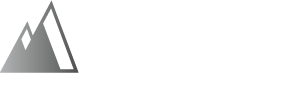When it comes to assessing the value of your business, whether you’re gearing up for a sale or just curious about its worth, it’s crucial to approach the process with objectivity. There are three main methods for valuing a small business, each tailored to different scenarios based on industry, size, and the circumstances of the sale.
- Market-based valuation: This method is ideal for businesses with steady profits and ongoing operations. It involves comparing your business to similar ones that have recently been sold. The key is to ensure you’re comparing similar financials within the same industry and market, then analyzing pricing multiples to gauge your business’s worth accurately.
- Asset-based valuation: Typically used for businesses that are unprofitable or nearing closure, this approach focuses on the book value of your business. It entails valuing your business assets, totaling them up, and subtracting any liabilities to arrive at a valuation.
- Income-based valuation: This method is commonly utilized for commercial real estate or alongside a market-based valuation for businesses with predictable earnings. It relies on projected future earnings to determine the value, which is particularly prevalent in the valuation of commercial real estate assets.
Knowing when to enlist the expertise of a business broker is crucial. Starting the valuation process early allows for the engagement of professionals as the value of your business increases, this minimizes the risks of under or overvaluation. Additionally, it affords you the opportunity to leverage their experience and impartiality in valuing your business accurately.
At Western Business Advisors, we offer business owners various affordable options to ascertain a range of their business’s market value and provide a roadmap for the selling process. Collaborating with a reputable business broker can not only help you determine your business’s value but also maximize its sale price, navigate the sales process, and connect with the most suitable buyers.

